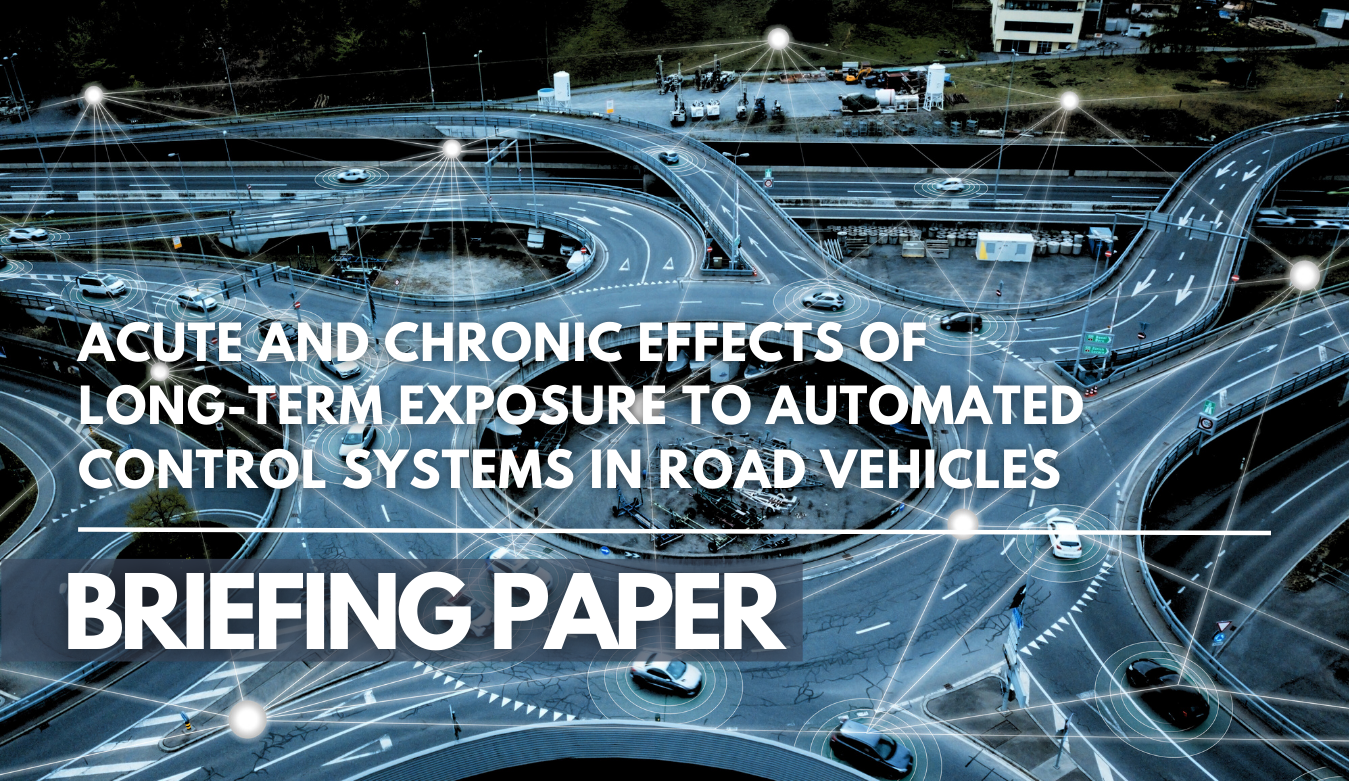
A world where computers operate vehicles instead of humans has long been imagined. In the air, auto-pilots have taken the controls for decades, similarly in rail transport. Recent technological developments mean that there are now roads where vehicles travel with no human at the wheel. Many claim that this will increase safety.
However, a human is still needed to resume control from time to time. That is where the ‘irony of automation’ comes into play. With too much reliance on automation, the less the human operator is ready or able to respond when necessary. With too little experience at taking the controls, the less the human operator is able to manage them when needed.
This briefing paper prepared by PACTS Road User Behaviour Working Party, led by Professor David Crundall, and written by Dr Nick Reed, brings to focus on the risks which remain and proposes ways to mitigate them.
Author, Dr Nick Reed states “Vehicle automation represents a huge opportunity to improve road safety – however, we should not overlook human factors considerations that have been studied for many years and in other transport modes that may negate those potential improvements. This paper serves to highlight some of those challenges and makes recommendations on how we might address concerns over ‘acute’ and ‘chronic’ exposure effects of automated driving.”

